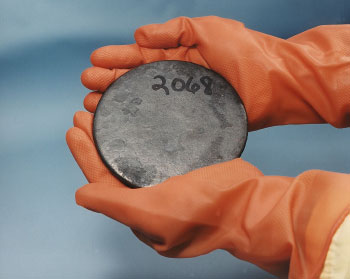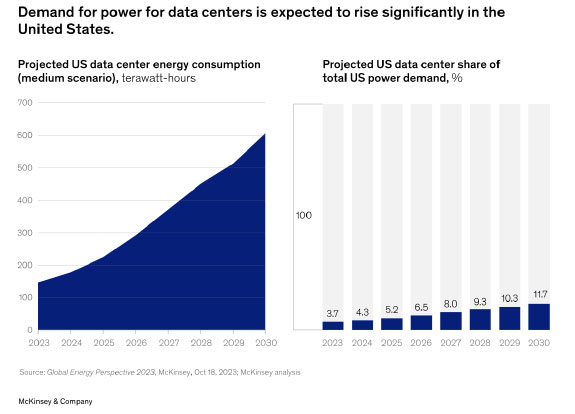I bear in mind listening to about thorium again in my Wall Road days.
For many years, analysts pitched it as a “cleaner, safer” different to uranium as a result of it couldn’t be weaponized and produced far much less radioactive waste.
The U.S. had even constructed a working molten-salt thorium reactor at Oak Ridge Nationwide Lab within the Sixties. However regardless of its success, the undertaking was finally deserted.
That’s as a result of uranium was already embedded in world provide chains, and the Chilly Battle-era army institution didn’t have any use for nuclear materials that couldn’t gas a bomb.
So thorium was shelved. And within the U.S., it has remained dormant for the previous 50+ years.
However China appears to be waking as much as thorium’s potential as a nuclear gas supply…
And it may change the stability of worldwide vitality management for many years to return.
One Million Tonnes of Leverage
In January, Chinese language officers confirmed a large thorium discovery on the Bayan Obo mining complicated in Interior Mongolia.
Supply: NASA
This website was already often called the world’s richest uncommon earth deposit. Now it’s estimated that 1 million tonnes of thorium oxide are additionally embedded in these rock formations.
However the U.S. has recognized about thorium for many years. So what’s the massive cope with this latest discover?
Most nuclear reactors right now depend on uranium-235 to energy them.

However uranium is uncommon and unstable.
It will also be a political legal responsibility as a result of uranium-based energy creates long-lived radioactive waste, and uranium reactors carry a non-trivial threat of meltdown.
Fukushima and Chernobyl are two prime examples of what occurs when these reactors fail underneath stress.
Thorium, against this, is considerably extra ample within the Earth’s crust than uranium. That makes it simpler and cheaper to supply over time.
It additionally produces lower than 1% of the long-lived radioactive waste generated by conventional uranium-based reactors.
And it may be utilized in molten-salt reactors, which function at atmospheric stress and embody passive security options that dramatically scale back the chance of catastrophic failure.
Which means there are important benefits to utilizing thorium to create nuclear reactors.
And that brings us again to China’s latest thorium discovery.
In accordance with inside estimates, this new discover is sufficient to meet China’s home vitality wants for as much as 60,000 years at present consumption ranges.
So whereas the U.S. and most different international locations are nonetheless betting on uranium-based nuclear enlargement — or scrambling to scale renewables — China is fast-tracking the infrastructure to show their new thorium discover into vitality.
China has already constructed a prototype 2 MW molten-salt thorium reactor, and it’s additionally developing a ten MW demonstration reactor within the Gobi Desert.
If these reactors are profitable, the following section might be industrial-scale deployment, which may finally energy China with a safe, home, low-waste vitality platform.
It might additionally signify a missed alternative for the U.S.
In any case, we led the world in molten-salt reactor analysis throughout the Chilly Battle.
Through the late Sixties, scientists at Oak Ridge Nationwide Laboratory constructed and efficiently operated a functioning molten-salt reactor. It ran on thorium gas and proved each secure and environment friendly.
However within the Nineteen Seventies, federal assist dried up, and this system was quietly shelved in favor of uranium-based reactor designs.
Right now, China is utilizing a lot of that declassified U.S. analysis as a basis for the brand new reactors it’s constructing.
Which means, we’d have unknowingly given China an edge within the race to synthetic superintelligence (ASI).
Right here’s My Take
It’s too early to know whether or not thorium will turn out to be a dominant gas supply.
However the world is starting to understand it could’t meet its future vitality wants with photo voltaic panels and wind farms alone.
That’s as a result of AI is driving exponential demand for steady, high-density energy, notably from information facilities.

Massive Tech is properly conscious of this. Simply final week, Meta signed a 20-year deal to energy its AI operations with nuclear vitality, becoming a member of a rising checklist of firms turning to next-gen energy sources to satisfy rising demand.
But when China’s thorium initiatives can scale, it may cement Beijing’s place as the worldwide chief in next-generation nuclear energy.
On the very least, it might give China leverage over one more crucial strategic useful resource.
At scale, it may result in true vitality independence.
Both manner, it might give China an edge within the race to ASI.
As a result of the U.S. continues to be grappling with an getting older energy grid, regulatory delays and an absence of political consensus on the right way to modernize its vitality technique.
If we intend to win the race to ASI, we’ve to decide to investing sooner or later by ramping up our vitality infrastructure.
In any other case, we’d find yourself watching from the sidelines whereas China beats us to it.
Regards,

Ian King
Chief Strategist, Banyan Hill Publishing
Editor’s Be aware: We’d love to listen to from you!
If you wish to share your ideas or solutions in regards to the Day by day Disruptor, or if there are any particular matters you’d like us to cowl, simply ship an electronic mail to [email protected].
Don’t fear, we gained’t reveal your full identify within the occasion we publish a response. So be at liberty to remark away!















